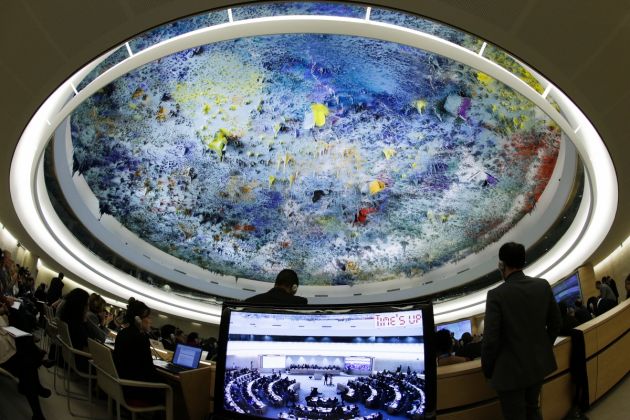Vatican envoy pulls up UN expert for ignoring faith-backed health

A U.N. expert on health for all has taken some flak from the Vatican's envoy to international organizations in Geneva for ignoring the role of non-governmental and religious health providers.
At the same time Archbishop Silvano M. Tomasi has called for a global system that guarantees everyone's adequate health care.
Mosignor Tomasi addressed the 23rd Session of the U.N. Human Rights Council after reviewing the United Nations Report on Access to Medicines on June 10.
He noted, "insufficient attention to certain factors cited as 'key elements' by the [U.N.'s] Special Rapporteur," Anand Grover, an Indian human rights lawyer.
The Catholic Church is well known for its health services in many parts of the world, as are many other faith organizations.
He said the U.N. expert's report "paid insufficient attention to basic needs of individuals and families, at all stages of the life cycle from conception to natural death."
In order to effectively provide access to medicines, Tomasi said, "an integral human development approach that promotes just legal frameworks as well as international solidarity, not only among States, but also among and between all peoples" must be developed.
The Vatican envoy noted with alarm, "the difficulties millions of people face as they seek to obtain minimal subsistence and the medicines they need to cure themselves."
The archbishop called for "establishing true distributive justice which guarantees everyone adequate care on the basis of objective needs."
He added that there is a prerequisite for States to make medicines available.
But Tomasi said the U.N. expert's report should have acknowledged "the strong engagement of non-governmental and religious organizations in providing both medicines and a wide range of treatment and preventive measures."
The archbishop referred to 5,305 hospitals and 18,179 clinics organized under Catholic Church auspices throughout the world which he said serve the poorest sectors of society, many of whom live in rural and isolated areas or in conflict zones, where governmental health systems often do not reach.
"This fact has been confirmed by professional mapping exercises, with support and collaboration of the World Health Organization, which reported that 'between 30 and 70 per cent of the health infrastructure in Africa is currently owned by faith-based organizations."